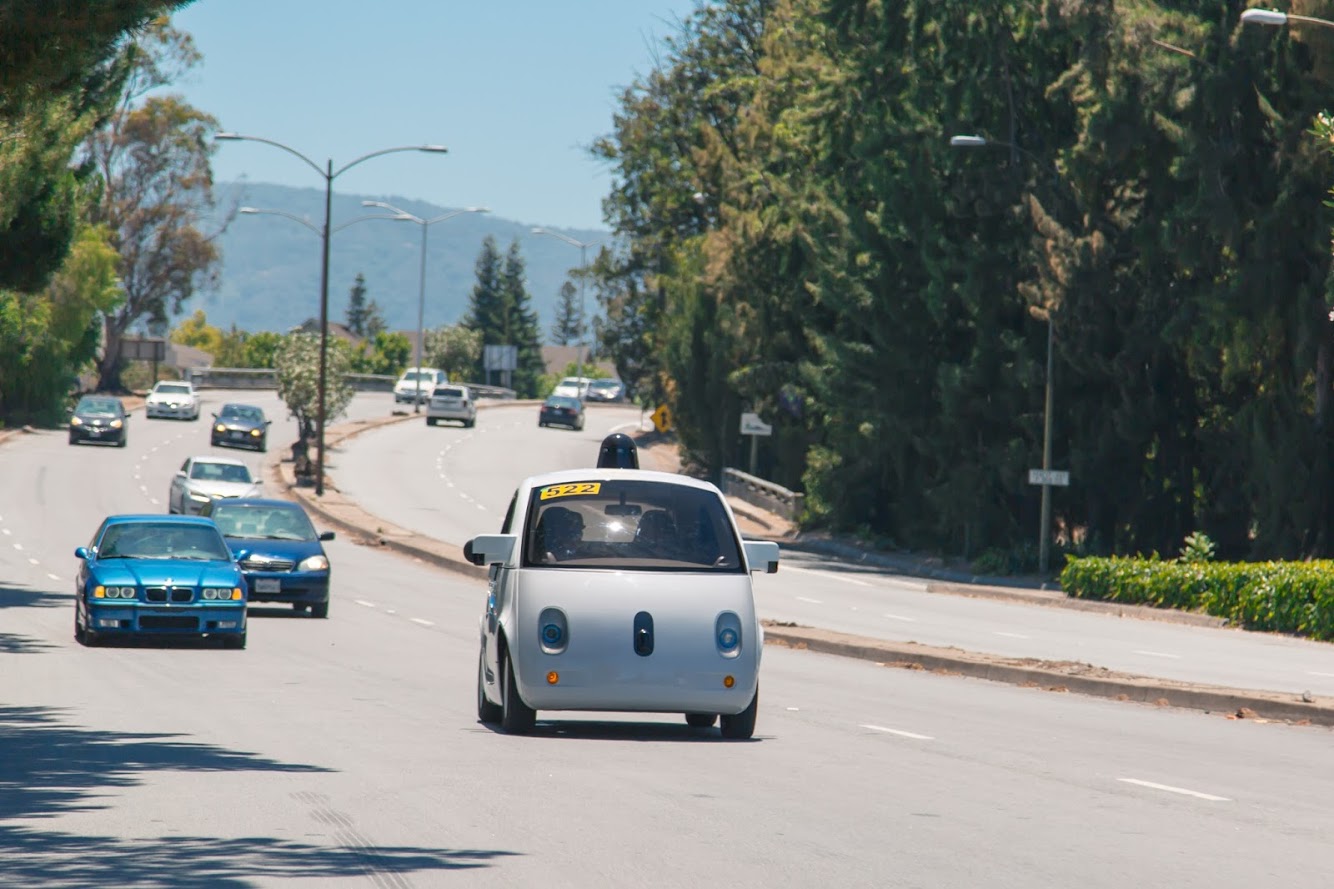Google’s Cars are Now Smarter, and Slower
If you find yourself stuck behind a car driving at excruciatingly slow speeds around Silicon Valley in the coming weeks, there may be little point honking your horn.

Google has started testing its latest prototype automated vehicles around Mountain View. The odd-looking little vehicles top out at an impressive, “neighborhood-friendly 25 miles per hour,” according to Google, so they might cause a little frustration for other folks on roads like the one shown above.
At least you’ll be able to complain via a handy webpage Google has put up to solicit feedback from other drivers. A video included on that page also provides some interesting insights on the latest efforts by Google to make its cars smarter, and safer. For example, it shows that the cars can now recognize erratic cyclist hand-signals, and how they can cope with construction work, or vehicles parked in unusual ways. Eventually the cars might need to go a bit faster though, perhaps even above the speed limit. When was the last time you saw anyone going under 70 mph on the freeway, after all?
As automated cars become more common, it will also be interesting to see how they deal with each other in various situations. We saw the first potential example of this with reports today of a “close call” between one of Google’s cars and another self-driving vehicle operated by Delphi. It now seems that the incident was actually a fairly normal traffic interaction rather than a case of robotic road-rage, although it does seem like Google’s algorithms might be a bit more aggressive. That may well come in handy once they start testing their cars on the streets of Boston.
Keep Reading
Most Popular
Large language models can do jaw-dropping things. But nobody knows exactly why.
And that's a problem. Figuring it out is one of the biggest scientific puzzles of our time and a crucial step towards controlling more powerful future models.
The problem with plug-in hybrids? Their drivers.
Plug-in hybrids are often sold as a transition to EVs, but new data from Europe shows we’re still underestimating the emissions they produce.
How scientists traced a mysterious covid case back to six toilets
When wastewater surveillance turns into a hunt for a single infected individual, the ethics get tricky.
Google DeepMind’s new generative model makes Super Mario–like games from scratch
Genie learns how to control games by watching hours and hours of video. It could help train next-gen robots too.
Stay connected
Get the latest updates from
MIT Technology Review
Discover special offers, top stories, upcoming events, and more.